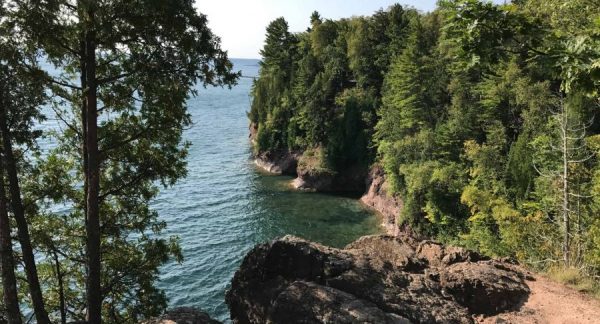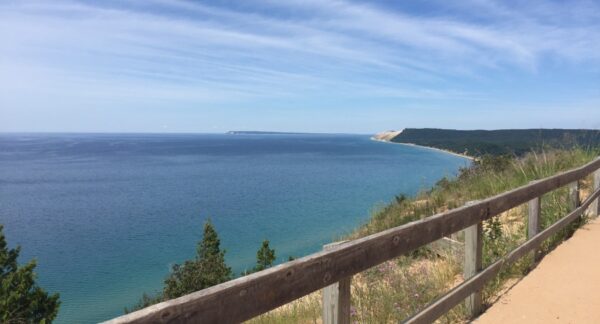Hiking and Addiction Recovery – Nature’s Dynamic Duo
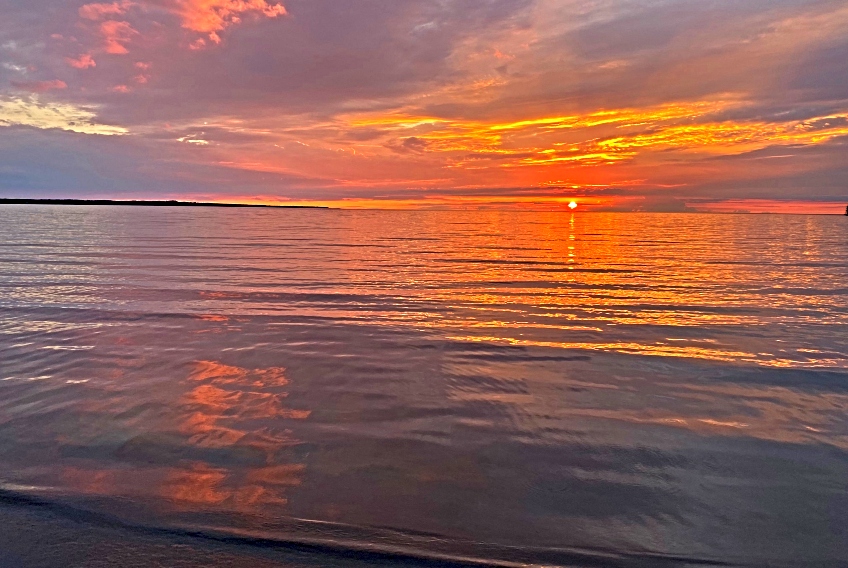
Studies show that appreciating natural beauty may boost well-being. Wilderness State Park, Carp Lake, Michigan
September boasts both Michigan Trails Week and National Recovery Month. I could not let the month end without comment, because the combination of hiking and addiction recovery is brimming with mental health benefits! More than that, Michigan outdoors has been a lifesaver in my own recovery story. My glowing accounts of dune scaling and Lake Michigan exploration are well known at Sanford Behavioral Health, where I work. I like to think I have made an impact on the organization’s high regard for patient excursions and the joy of fresh air. Of course, experiential and exposure therapy is part of the evidence-based practices at Sanford. I cannot take credit for the scientific data on the benefits of walking in nature. I just know how it feels as a person in recovery.
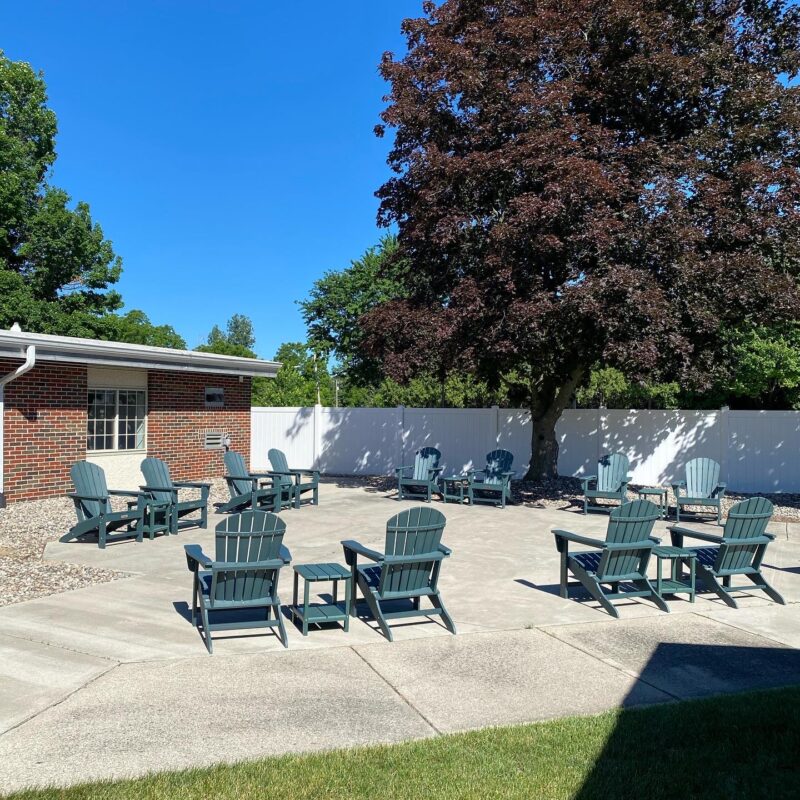
Taking the therapy outside at Sanford West Behavioral Health Campus
Hiking and Addiction Recovery
Remember the lockdown period of the pandemic? The antithesis of every recovery tip we have practiced, COVID-19 stripped us of community and forced us into isolation. The Centers for Disease Control (CDC) even changed the verbiage from “mandatory isolation” to “shelter at home” as if the pandemic could evoke fireside coziness, a Labrador retriever curled on the rug. The fact is, hiking in nature saved my mental health during the pandemic. Being outside reminded me that butterflies still migrate, and industrious ants still drag 20x their body weight, while the news reported the end of days. But walking in nature is not just a coping mechanism for troubled times. A rigorous hike (or even to sit) in nature is a staple for overall mental health.
Mental health is a state of wellbeing in which an individual realizes his or her own abilities, can cope with the normal stresses of life, can work productively and is able to make a contribution to his or her community.
World Health Organization
Why is hiking/walking in nature so important to recovery? Let me count the ways:
(With homage to Blandford Nature Center, Michigan State Parks, Grand Rapid’s Reeds Lake, and Lake Michigan the Grand Lac)
1, “Early to Bed, Early to Rise”
What is it about seeing the sunrise? The first hours of your morning can set the tone for the rest of the day. Hiking decreases depression and feelings of hopelessness. It also allows us to connect with nature and ourselves. And studies show that appreciating the natural beauty of a sunset can boost one’s well-being.
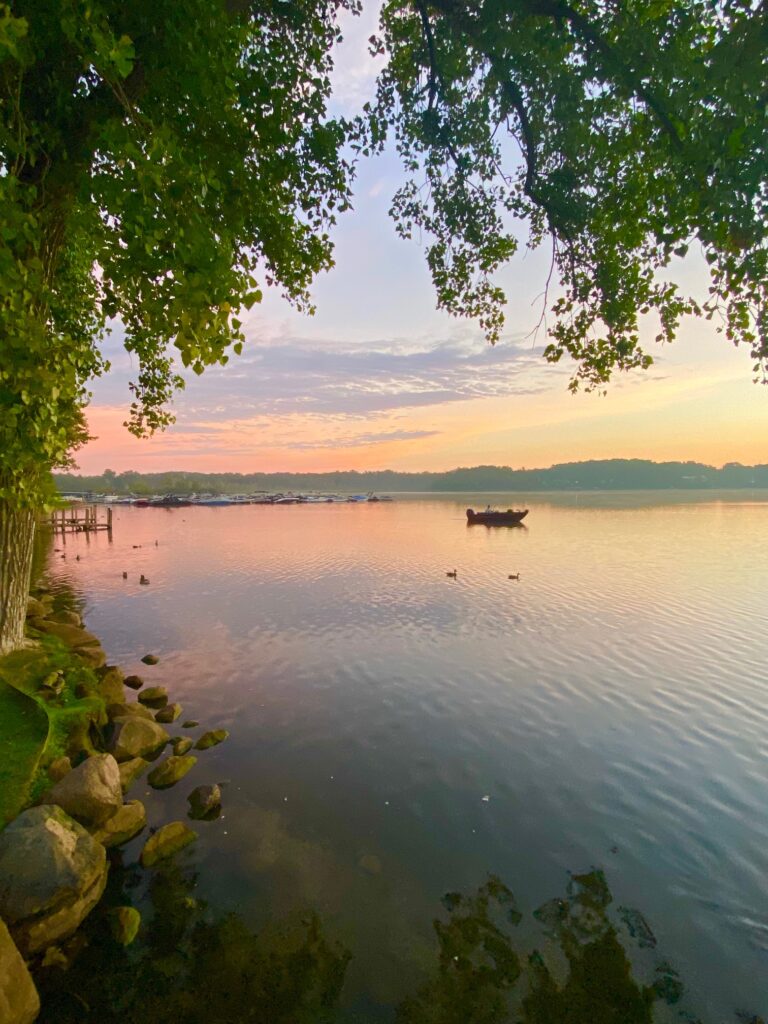
My favorite sunrise spot is Reeds Lake Park in East Grand Rapids.
2. Growth of the Hippocampus
Walking grows your hippocampus, a part of the brain that produces new neurons and supports important aspects of memory. And to boot, walking in nature has added benefits because it requires constant attention. Stepping over roots, or ducking under a low-hanging limb is the kind of activity that keeps the brain young.
3. Improved Sleep Quality
Sleep patterns are disrupted in early addiction recovery. A bracing walk in the fresh air makes you tired and enhances REM sleep. At Sanford Behavioral Health attention is paid to the comfort of mattresses, black-out shades, and quiet time for residential patients.
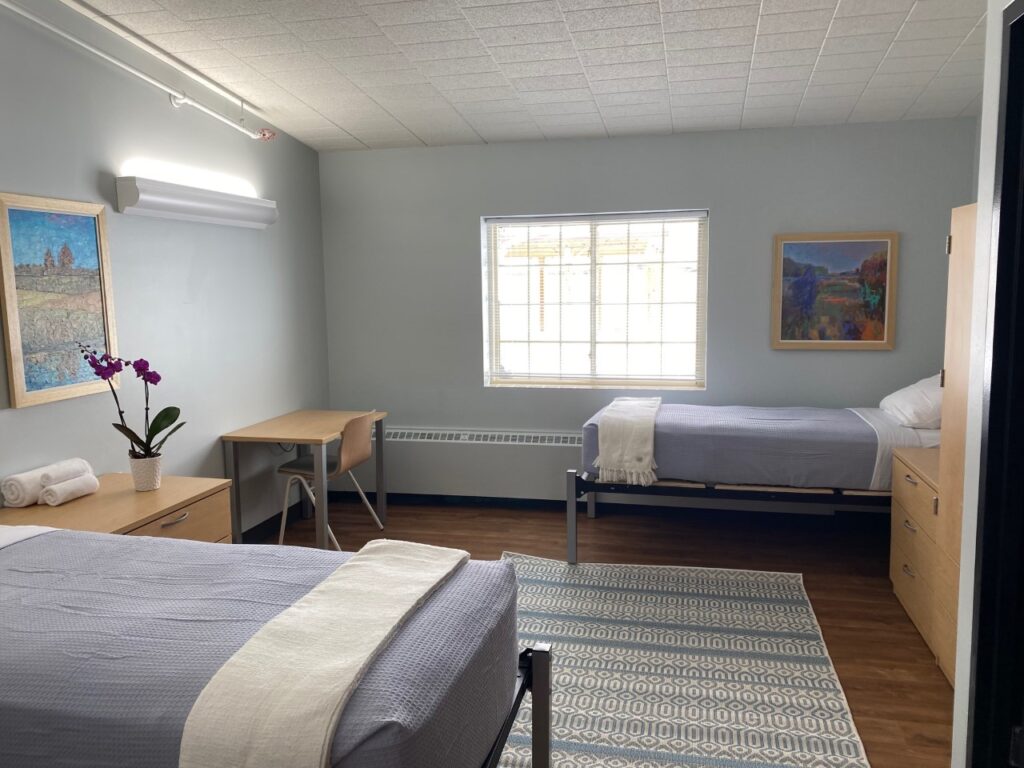
A bedroom at Sanford West Behavioral Health Campus
4. Your Heart, Lungs, and Blood Vessels Will Thank You!
Hiking improves cardio-respiratory fitness. And the farther you get from the madding crowd, the cleaner the oxygen.
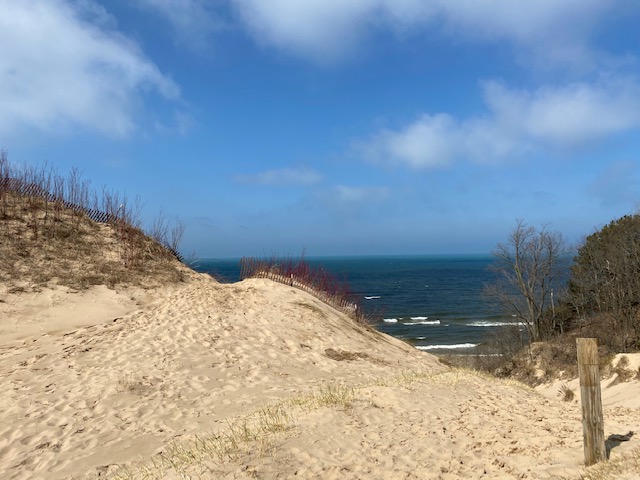
The satisfaction of getting to the top of a dune.
5. Walking Improves Muscular Fitness and Decreases Cravings
Without putting too much stress on your joints, the muscles in your legs, glutes, and core will develop and strengthen on the winding, tilting path. Improved strength and a sense of achievement is good for recovery and serves as a deterrent to cravings.
Many of the neurobiological effects of exercise have been characterized, and the ability of exercise to serve as an alternative, non-drug reinforcer, and decrease comorbid risk factors associated with substance use has been demonstrated across multiple assays.
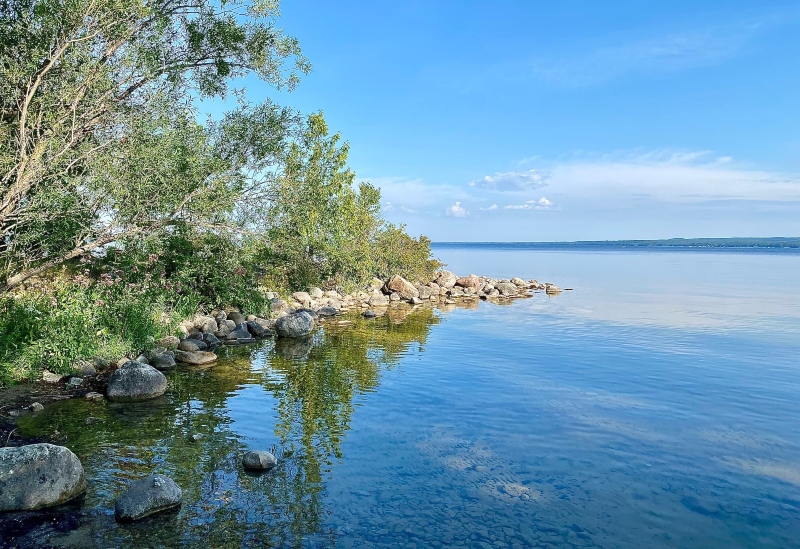
Black Lake in Onaway, Michigan
6. Hiking Improves Creativity
Spend time in Michigan outdoors and your attention span and brain power increases – creative juices flow more freely when you are active than when you are sitting. Have a problem that needs solving or an idea cooking? Trekking in the Michigan woods inspires creative thought. And according to Neuroscientist, David Strayer, unencumbered time in nature, without using a cell phone, enhances higher-order thinking, restores the brain, and boosts creativity.

Blandford Nature Center – the things you will see!
7. Walking Increases Bone Density
Especially if you walk with a pack, as you are getting plenty of “load bearing” exercise. Trekking on a difficult track and taking responsibility for your actions improves emotional stability as well as physical stability and balance.
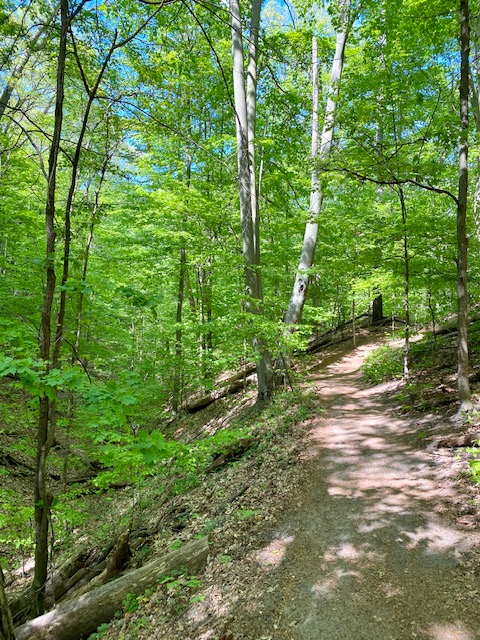
Muskegon, Michigan hiking trail improves addiction recovery!
Fostering Childlike Joy
My unscientific conclusion is that hiking in nature’s splendor, especially while in recovery, brings good ole fashioned joy. And in addiction recovery, it is important to take advantage of moments of joy, instead of ignoring them. Taking a walk can also reset feelings of anxiety, anger, or hopelessness. The ability to evaluate and reset how you are feeling is quite a gift. And these moments on the trail can serve as a reminder to get out of your head and invite the good.


